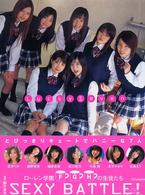Full Description
Wholehearted Voice Pedagogy: An Integrative Approach to Training Vocal Artists investigates how to develop healthy, equitable, student-teacher relationships in both applied and independent voice lessons. Knitting together research from cognitive science, education, mindfulness, and sports psychology, the book promotes a student-centered approach to teaching that gives singers agency over their vocal expression and buoys teacher well-being.
Divided into two parts, the book begins by examining the student-teacher relationship. It explores the history of this relationship, analyses contemporary opportunities and challenges impacting students and teachers, reflects on four holistic pillars of teaching, and offers recommendations for developing healthy boundaries and clear communication with students. The second part focuses on fostering a singer's artistry, covering such topics as selecting repertoire with the student, examining motor skill learning and various practice modalities, cultivating vibrant performances through artistic research, and creating an equitable rubric for assessment. Throughout the book, research is supported by anecdotes and insights from a diverse roster of Western classical, musical theatre, and CCM voice teachers.
Synthesized with reflective questions, recommendations for further reading, and a robust online companion, Wholehearted Voice Pedagogy presents an integrative approach to instruction that empowers singing artists and engenders connected, gratifying teaching. This book is a valuable resource for early-career and established voice teachers alike, and offers vibrant resources for vocal pedagogy courses.
Contents
Foreword
Preface
Acknowledgements
Part One: Understanding The Relationship
1 The Student-Teacher Relationship: A Historical Perspective
The Master-Apprentice Model: A Brief History
The Master-Apprentice Model and Singers
Historical Evidence Further Illuminating the Student-Teacher Relationship
Conclusion
2 Opportunities & Challenges Facing Today's Students & Teachers
Advancements in Technology
Social Media
The Evolution of Student Learning
Advancements in Teaching Modalities
Student & Teacher Stress
Providing Context in an Ever-Changing Industry
Conclusion
3 Four Essential Pillars of Holistic Teaching
Curiosity
Vulnerability
Mindfulness
Self-Care
Conclusion
4 Creating Healthy Boundaries and Developing Clear Communication
The Joys and Challenges of Private Instruction
Developing Healthy Relationships with Students
Navigating Student Conflict
Navigating Conflict Regarding Issues of Equity and Inclusion
When a Student Leaves the Studio
Conclusion
Part Two: Developing The Singing Artist
5 Selecting Repertoire with the Student
The Basics
Varied Challenges and New Considerations
An Equitable, Student-Centered Approach
Growing Our Repertoire Knowledge
Conclusion
6 Fostering Curiosity and Resilience Through Practice
The Fundamentals of Motor Skill Learning
Defining Practice
The Challenges
Teaching Practice
Developing Mental Toughness
Conclusion
7 Helping Students Access Final Performance Artistry
What is Artistry?
Challenges for Today's Singers
Prerequisites for Exploring Artistry
Investigating the Music: Three Examples
Melding Technique & Artistry
Coping with Performance Anxiety
Conclusion
8 Objectively Assessing Student Growth
The Initial Assessment
The Challenge of Assessment in Higher Education
Developing an Equitable and Objective Rubric
Assessment in the Independent Studio
Student Success: Nature vs. Nurture
Conclusion
Final Thoughts
Index by Subject

















